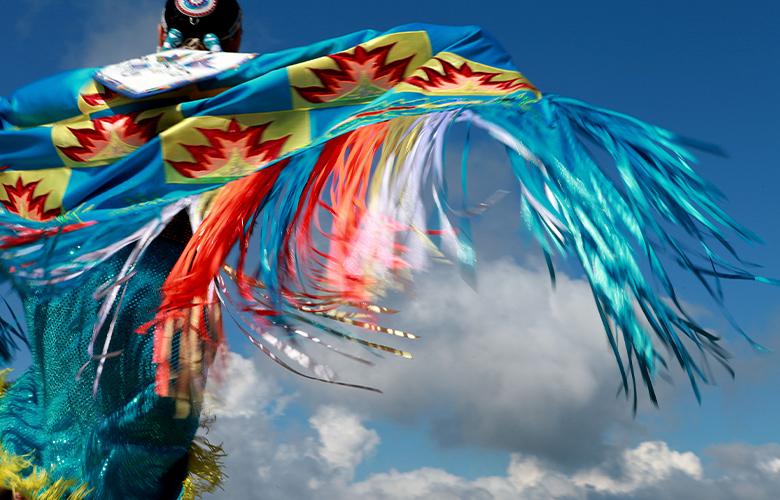
Ask the average person on the street to give you three words in relation to Indigenous people in this country and, invariably, at least two of them will have something to do with economic and behavioral health challenges. Rarely do we hear words related to resilience, spirituality, or kinship.
My Traditional niece, a Relative not of blood but of choice, delivered the keynote address for the American Association of Suicidology online conference in April. In her address, she fearlessly debunked the phrase used to validate the genocidal tactic of the residential/boarding school era—“kill the Indian to save the man.” Instead, she proclaimed, if we “save the Indian, we save the man.” In other words, reaching back into the root system of our people, returning to the Ancestral ways, is probably one of the most powerful protective factors available to us.
I thought a lot about my niece’s words and about how many people have no idea about the atrocities perpetrated against my Relatives, not only here in North America, but in many countries where Indigenous people are marginalized, tokenized, and invisible.
I thought a lot about the little children who were forced from their Tribes, from their families, and from their language, cultures, kinship models, and even names. I thought about how many young people we lose to suicide and how returning to the root—to our ceremonies, our languages, and our ways—is healing and protective. And I think about the challenges we face during this pandemic and the atmosphere of tension related to racial injustice.
As I think about all of these things, I remember that resilience is part of our DNA. I have hope and faith that our Ancestors are standing beside us as we wrap our collective arms around our babies to end their loss in our Tribes, villages, and communities. I have hope that the field of suicidality, a new field, will give us a seat at the table and will put the same plate in front of us that everyone else has—that they will listen to and respect our voices and our ancient healing ways. I have faith that the field will recognize that evidence-based practices are fine for some, but not for all. And while our ways may not be studied and written up in medical journals, they have worked for thousands of years.
For more information on Zero Suicide in Indian Country, visit the toolkit Best and Promising Practices for the Implementation of Zero Suicide in Indian Country.
| Sadé Heart of the Hawk Ali is an enrolled member of the Mi’kmaq First Nation. She is the Tribal Lead for the Zero Suicide Institute, a person in long-term recovery, and a suicide attempt survivor. |

Add new comment